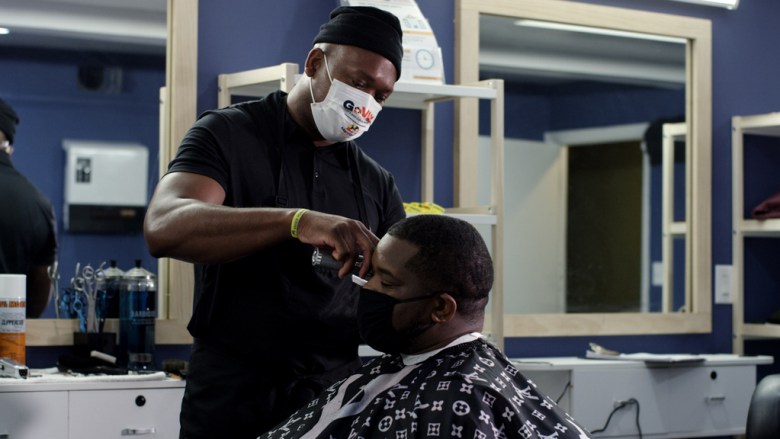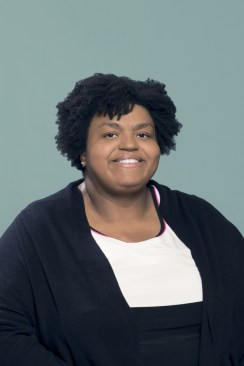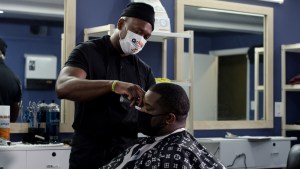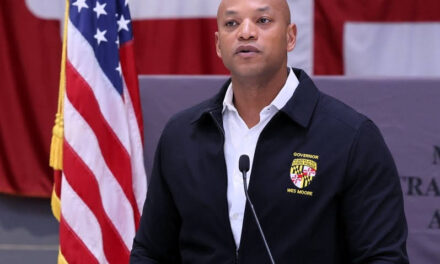
By Eddye Bullock, MD, Assistant Chief of Adult and Family Medicine, Kaiser Permanente
As we begin a new year, we are in a very different place than we were when this pandemic began. Thanks to unprecedented collaboration and funding, we have three safe and effective COVID-19 vaccines approved in the U.S., which have allowed us to slowly return to many aspects of “normal” pre-pandemic life, such as school, holiday gatherings and in-person workplaces. Additionally, everyone age 5 and older can now be vaccinated, putting us on our way to ending this pandemic.
Unfortunately, variants continue spreading and COVID-19 cases have begun to climb again – a sign that there is still work to be done. As a physician who has personally seen the toll that COVID-19 can have on families and communities, it is challenging to watch as some people take a “wait-and-see approach,” because getting vaccinated as soon as possible is the only way to protect ourselves and our families against COVID-19.
I’m sure that like me, many of you have had difficult discussions with friends and family members who disagree with you about vaccination. As a physician, it is my role to address patients’ concerns without judgment and in the most supportive way possible. While you reunite with loved ones, I hope to share some of the ways I’ve learned to have effective, compassionate and meaningful conversations with those in your life who are hesitant about getting the COVID-19 vaccine.
Build & leverage trust. Through Kaiser Permanente’s Good Health & Great Hair (GHGH) initiative, which brings health education and resources into barber shops and salons where people feel comfortable – I’ve witnessed first-hand how important it is to build trust and to leverage trusted voices in our community. The GHGH program has teamed up with the Maryland Department of Health’s GoVAX campaign to bring vaccine education to community gathering spaces and training salon owners, barbers, pastors, teachers and other leaders to help build vaccine confidence in their communities.
The GoVAX campaign highlights that people are more likely to accept information that challenges their beliefs when it’s shared by a trusted friend, colleague or community leader in a comfortable setting. Each of us has the power to be a trusted messenger for someone in our lives – whether it’s a friend, family member or neighbor – by speaking up and sharing your personal vaccination story or accurate vaccination information with your loved ones.
Choose a comfortable setting. While I’ve had many effective vaccine conversations with patients, it’s important to acknowledge that not everybody feels “at home” in the doctor’s office. For example, our community ambassadors in the GoVAX program tell us that people open up in the salon chair. It’s critical to have these tough conversations in a non-threatening environment, preferably one-on-one, where your loved one feels relaxed and at ease.
Show empathy. Some people who are hesitant about the COVID-19 vaccine have deeply held beliefs about vaccination that, unfortunately, are based on misinformation heard in their social circles. Getting through to these individuals can be challenging and requires a balance of empathy and careful explanation of the science behind the vaccines. Let them know that having questions or concerns is reasonable, thank them for sharing with you and listen closely to their concerns.
It’s also important to understand that there is no “one-size-fits-all” approach to building vaccine confidence. There can be several reasons why individuals are hesitant to get vaccinated or to vaccinate their kids, including:
- Fear – some people may be terrified of needles, unsure of the side effects or nervous about rare adverse reactions.
- Access – some individuals may not have the means to get to a pharmacy, vaccine clinic or their primary care provider. Others who are uninsured or undocumented may incorrectly believe they are not eligible to receive the vaccine. You do not need to be a citizen or have health insurance to get vaccinated.
- Communication – Linguistic, cultural or technological barriers may leave some individuals with unanswered questions or a lack of trusted leaders delivering accurate vaccine information.

Share your why. Finally, remember that we can all play a part in ending the COVID-19 pandemic, by sharing our own personal reasons for getting vaccinated in a kind and compassionate way. We know that people respond best to personal stories with which they can relate. Share with your loved one why getting vaccinated is important to you. Having these conversations can be difficult, but you can make a difference – one conversation at a time. Now let’s end COVID-19.
To learn more visit kp.org/govax.
Help us Continue to tell OUR Story and join the AFRO family as a member – subscribers are now members! Join here!
The post Building COVID-19 vaccine confidence: Encouraging others to get vaccinated appeared first on AFRO American Newspapers .










